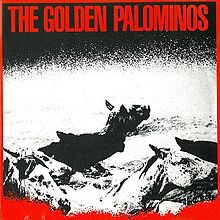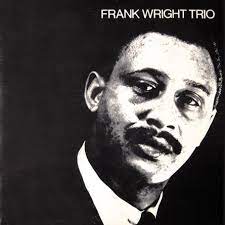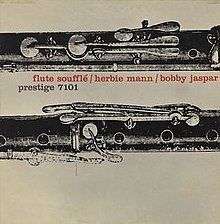-
Posts
7,532 -
Joined
-
Last visited
Content Type
Profiles
Forums
Events
Blogs
Everything posted by Rabshakeh
-
I hadn’t realised Illusions was actually his first of the 1980s. I associate all those early Columbias strongly with the 1980s, so am surprised to find that they are in fact mostly 70s. Interesting choice of Special Edition record, and concentration on John Purcell, a player whom I don’t know at all. I wonder if Dan would recommend any other records that he played on? I should add that there are some interesting choices from the last day or two. in terms of adding comments, it currently requires a Google account. Is there any way of adding an anonymous option where it isn’t necessary to sign in?
-

Japanese Jazz
Rabshakeh replied to Head Man's topic in Jazz In Print - Periodicals, Books, Newspapers, etc...
Thank you. That makes sense. I think that I agree, particularly for bop and hard bop. I also struggle a little with the melodic/harmonic material, which feels “learned” to me. When I listen to the London musicians from the hard bop era, their playing, especially on blues, sounds a little artificial. It is like the difference between fresh orange juice and rehydrated concentrate. My own tastes for non-American jazz really starts with 1968, with the post bop and free eras. -
I'm glad that Windmill Tilter record has been released, regardless.
-

Japanese Jazz
Rabshakeh replied to Head Man's topic in Jazz In Print - Periodicals, Books, Newspapers, etc...
Why uncomfortable? -
-
Looks interesting. I don't know Foster other than on Nec Plus Ultra, although I see that be played with the Akiyoshi / Tabackin big band.
-
Evil Bitches Brew is a better description than mine. I file my jazz collection into "nice or Latin" and "evil" sections. Evil being anything that would ruin a dinner party conclusively (e.g. Brotzmann).
-
Sad to say that I have seen a few reports that say that the Belgian pianist Fred Van Hove, who played on some of the classics of the European avant garde, has passed away.
-
It's like Black Sabbath or something. Happy chewing.
-
This is the Pat Martino for me. It's so heavy.
-

Japanese Jazz
Rabshakeh replied to Head Man's topic in Jazz In Print - Periodicals, Books, Newspapers, etc...
There’s a series of “J Jazz” compilations that have come out recently, covering artists like Suzuki Isao, Mine Kosuke and Kikuchi Masabumi. They are excellent compilations, but they do trade a little bit on Western perceptions of Japanese cool. I think that the article references the compilations; it is clearly based on them. I never had a problem with the rhythmic side of Japanese jazz in the way that I do with e.g. 1950s European jazz. I think that reflects the fact that a lot of what comes into our view as overseas listeners is either avant (the first Japanese jazz musician I even heard of was Abe Kaoru), or heavily influenced by Coltrane and Miles Davis’ modal and early electric periods. In both, those rhythmic issues are not so apparent. I find it interesting how this particular class of Japanese players burrowed so deep into In A Silent Way, Bitches Brew and My Favorite Things. Those are obviously classic albums, but not ones that actually set the tone for that much American jazz, at least not quite as directly. It means that there’s something fresh and interesting on them, helped by the very strong playing of players like Mine. I guess you could say a similar thing for the British jazz of the era and it’s burrowing into Gil Evans and Davis’ Second Quartet, on the one side, and jazz rock on the other. Regardless, the more exposure, the better. There have been some really excellent compilations and reissue campaigns recently covering Japan, Britain, South Africa and France. From social media, it is clear that this is cutting through. I hope this continues. -
What’s the opposite of the wheedledeedle school?
-
Was this part of the Summer haul?
-
I think he's without a doubt one of my favourite saxophonists working at the moment. Wide diet, fully digested.
-
Jazz Reddit is very enthusiastic about a pianist at the moment called Hiromi Uehara. I've been listening to her records this morning. I'm struggling to hear the quality to be honest.
-
I was just excitedly texting my friends the same thing.
-
How well known were they prior to Steps in straight ahead and fusion loving circles? Which record was this? I'm looking at Wikipedia and can't see it.
-
He is. New album out with Jason Moran. I saw them perform as a duo, with a French singer, in December. Shepp is quite frail at this stage, and needed to be helped on stage by Moran, but he played well. It was in the awkward environment of London's Barbican, which is quite 'institutional', but it was nice to see him play.
-
That's a good point. Three musicians who are probably all "A listers" but who have surprisingly little cut through to either the more vocal fans or to critics. I first heard of all of them (or at least heard of Brecker as someone important) in the context of discussions about how they are models for / fashionable amongst students at Berklee or other jazz colleges. There was a recent episode of the WBGO radio show Jazz United which discussed Brecker's (late) debut solo album. Of the two hosts, Greg Bryant, a musician himself, was an enthusiastic fan of Brecker, whereas Nate Chinen, who out of the two is the voice of the jazz critical establishment, had never heard of the record. With Brecker, I find myself impressed when I listen closely - to me he is leagues ahead of peers like Lovano or Liebman - but it is easy to let his solos float under the ear if not paying attention. The result is that I listen to the later-named two far more, despite liking them much less. He is a strangely insignificant A lister.
-
-
I find that I like most of his solo records, and Steps, but that he just doesn’t come to mind. The fusion stuff leaves me pretty cold, even though I’m not otherwise averse to fusion. Obviously there’s a high degree of gloss on everything he did, which I find a bit off putting (I have similar feelings about Metheny). I get the sense that Steps was a big deal if you were around in the late 1970s, which I was not, but perhaps the group’s importance has been dulled since then, probably partly as a result of the intervening and universally beloved Marsalis phenomenon.
-
-
Jazz historian Ted Gioia has just done a substack article on Michael Brecker. https://tedgioia.substack.com/p/how-michael-brecker-reinvented-the It's solid rather than spectacular, and served mainly to remind me that I never remember to listen to Brecker. Other than occasional appearances of Steps in the Listening To thread, I get the sense that the same is true of most of us here.
_forumlogo.png.a607ef20a6e0c299ab2aa6443aa1f32e.png)



